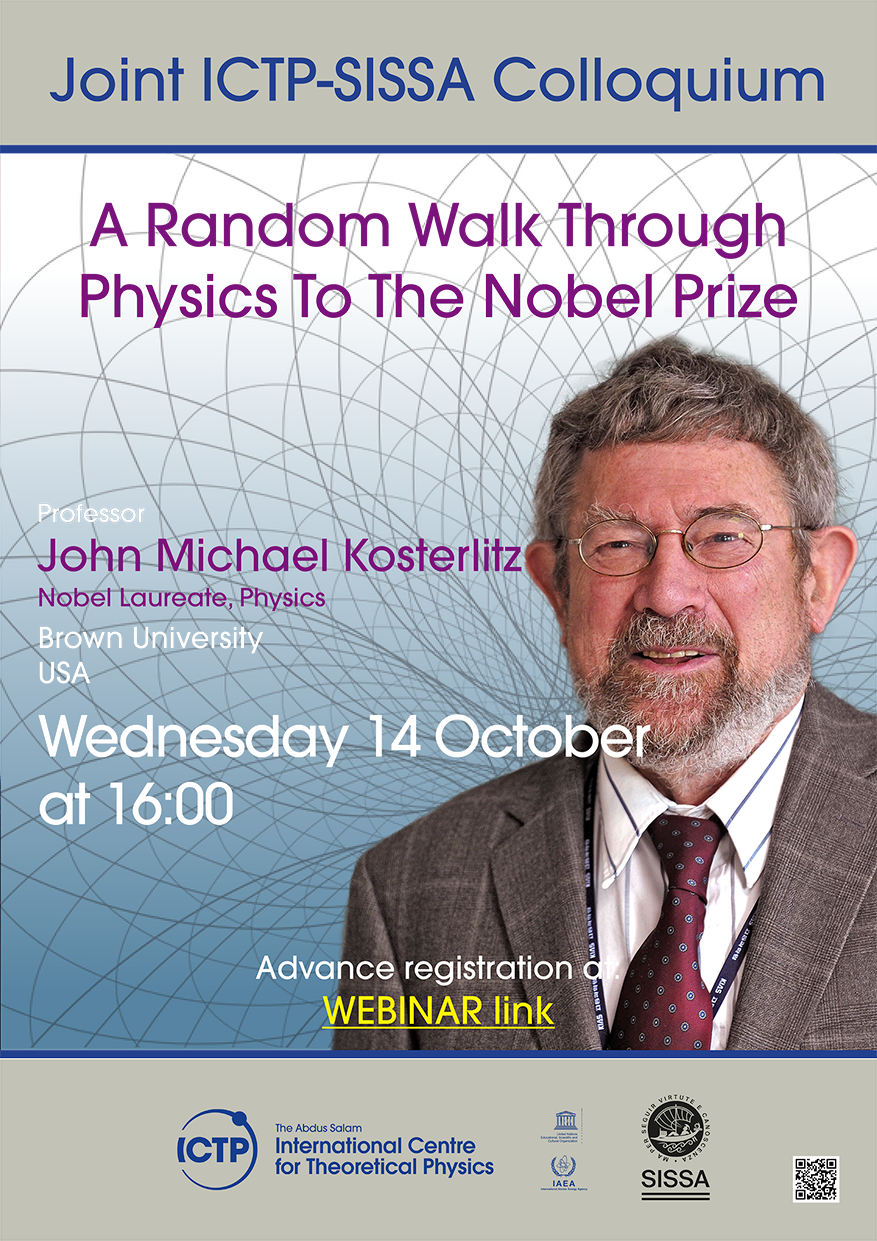

For the next SISSA-ICTP Colloquia we are proud to host John Michael Kosterlitz, British-born American physicist who was awarded the 2016 Nobel Prize in Physics for his work in using topology to explain superconductivity in two-dimensional materials. He shared the prize with British-born American physicists David Thouless and Duncan Haldane.
Abstract: The talk is the story of my random walk through physics via Cambridge, Oxford, Turin and Birmingham finishing up at Brown University. I describe my very crooked path through life including physics and my other life as a mountaineer. I also include a somewhat simplified version of my prize winning work. The talk will be followed by a question/answer session.
Professor Kosterlitz studied at Gonville and Caius College, Cambridge, earning his BA and MA before moving to Brasenose College, Oxford, where he gained his DPhil in 1969. He performed post-doctoral work with David Thouless at the University of Birmingham and, building on work by Russian physicist Vadim Berezinskii (1935-1980), they discovered the Berezinskii–Kosterlitz–Thouless phase transition of two-dimensional models at low temperature. He also worked at Cornell University, New York, before being appointed as lecturer, senior lecturer and reader at Birmingham in 1974. In 1982 he moved to the US as professor of physics at Brown University in Providence, Rhode Island. The 2016 Nobel Laureates in the field of physics – David Thouless, Duncan Haldane and Michael Kosterlitz – demonstrated how materials can be understood in terms of the mathematical principles of topology, a modern form of geometry that studies different sorts of spaces. A topological surface is partly defined by how many holes there are. In topological terms, a doughnut and a cup are the same (both having one hole), but a ball is different. Its importance here is that it explains why electrical conductivity inside thin layers changes in integer steps. The work of the three laureates was a watershed in understanding and calculating the properties of material systems, and it is thought it may pave the way for a new generation of quantum computers. Apart from the Nobel Prize, Kosterlitz was awarded the Maxwell Medal and Prize by the British Institute of Physics in 1981 and the Lars Onsager Prize from the American Physical Society in 2000. He is also a Fellow of the American Physical Society, Fellow of the American Academy of Arts and Sciences and elected in 2017 to the National Academy of Sciences.
This ICTP-SISSA Joint Colloquium will be held via Zoom webinar.
Pre-registration is required here
After registering, you will receive a confirmation email containing information about joining the webinar.

